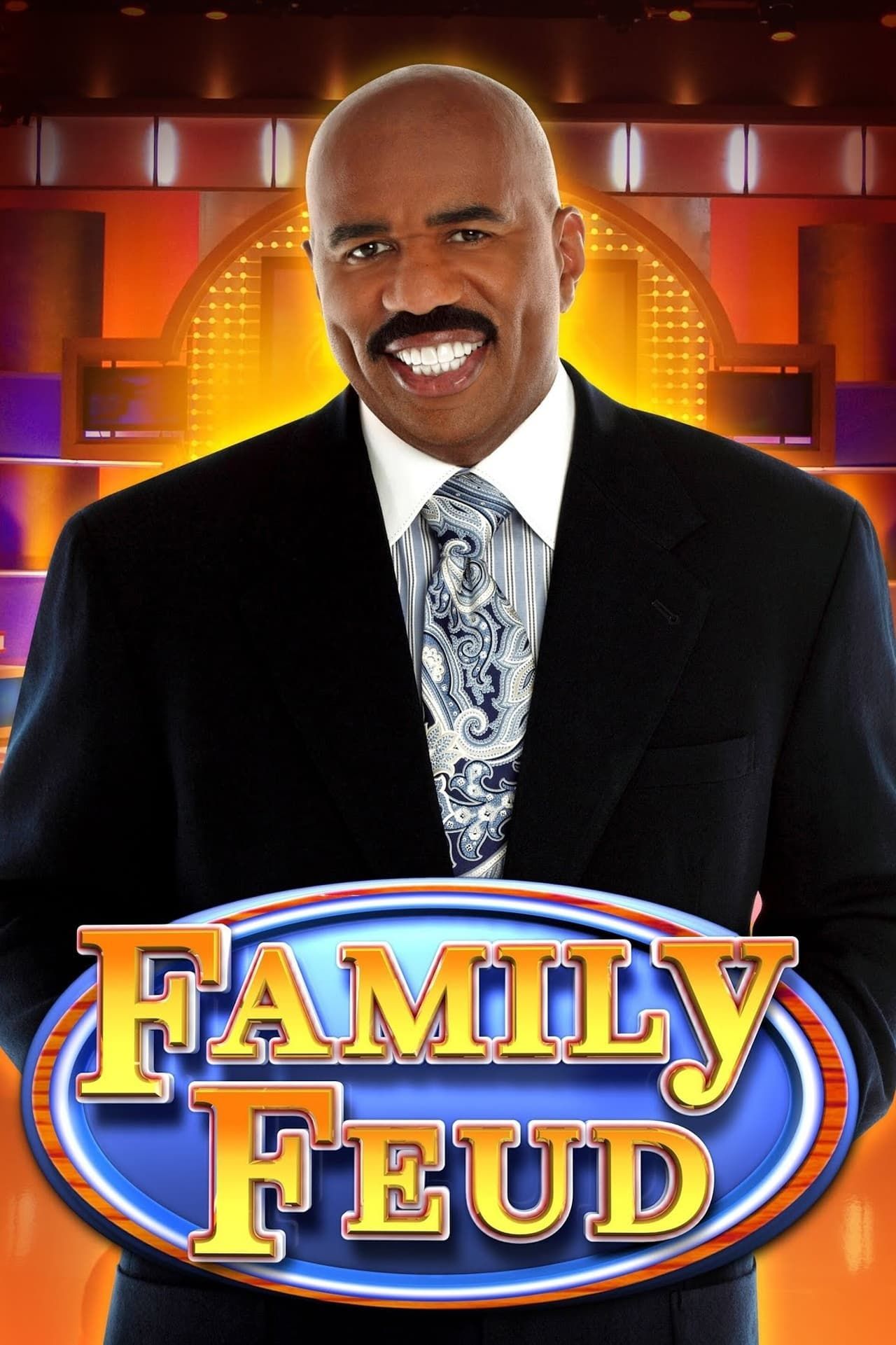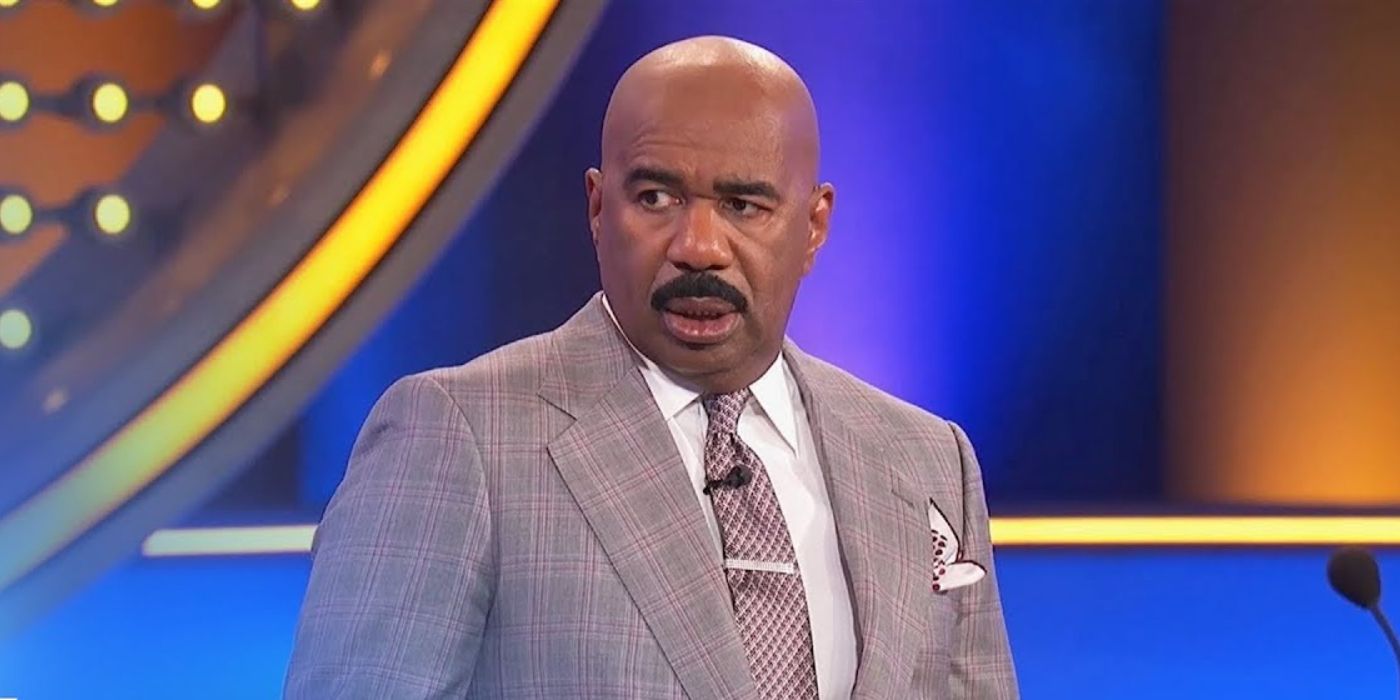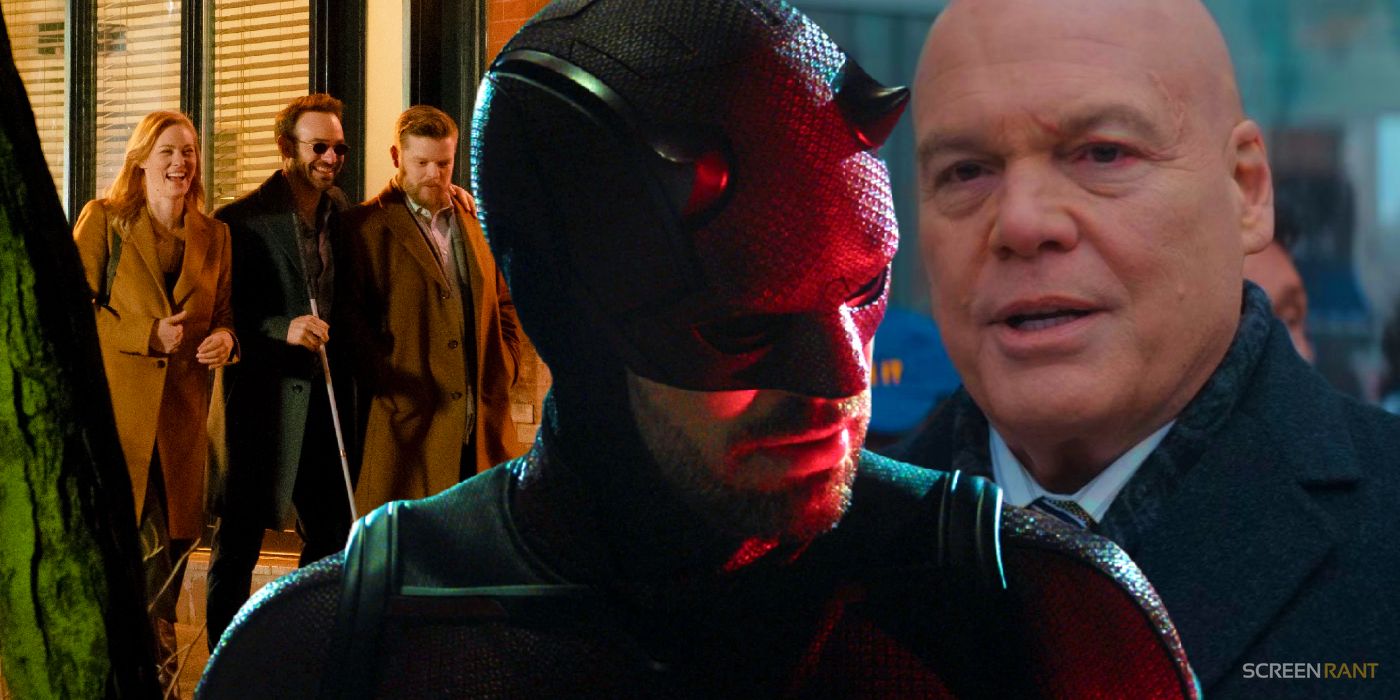As any fan of Family Feud can tell you, there are certain undeniable truths about the show. One: some contestant will answer the question with something bawdy. Two: that answer will be on the board, but with a slightly more family-friendly name (i.e., "love sausage" for, um, you know). Three: a contestant will give an answer that has no connection to the question being asked, like an epic fail of answering "Hannibal Lecter" when asked "Which Disney Princess would you be if you could?" Four: Steve Harvey will be sent into fits of laughter over that answer. Five: out of all ten contestants, at least one is going to be flat-out weird. These truths may not materialize in every episode, except for truth number six: the winning family will play, not pass.
Why Contestants Never Pass on 'Family Feud'
For the Family Feud uninitiated, here are the deets. Two families go head-to-head in a bid to guess the most popular answers to a question, winning points if they guess them all, getting nothing if they get three incorrect answers (see truth number three above). Each round begins with one player from each team trying to buzz in before the other to get the first crack at answering. If their answer is the most popular, or if the other team's answer is lower on the board, the winner of that tête-à-tête gets to choose what their team will do. If they choose to play, the question is answered by each member of that family individually in an effort to clear the board. If they choose to pass, the other team gets to try clearing the board.
99.9% of the time, the family opts to play, with a .1% margin of error. I personally only ever remember it happening once, back in the days of Richard Dawson, and it clearly surprised me enough that I still recall it happening. (I didn't get out much as a child.) But I digress. The question, then, is why do contestants overwhelmingly opt to play? There are multiple forums online that pose that very question, and just as many opinions as to the reasons why. The truth is, there is no definitive reason, but the most likely is that the odds are better to play. When a contestant chooses to play, their family gets a chance to make more guesses as to what's on the board, which typically results in the most popular answers being taken off. If they clear the board, they win, but if they don't, the onus falls on the other team to try and figure out what the elusive leftover answer might be... and they only get one shot at it. It's only logical that it is far easier to take multiple shots at clearing the board, as opposed to only getting one shot at a (most-likely) low answer (that may very well be the most Sheldon-like sentence I have ever written for Collider... eeeek...).
There’s an Argument To Be Made for Passing in ‘Family Feud'
That said, there is an argument to be had about using the option to pass instead. A man by the name of Aaron Weber makes a valid defense of why one would opt to go with the madness of passing. It even involves math, so you know that the lad has put some serious thought into it. As I understand it (and again, there's math, and I'm a writer, so, yeah), if a contestant gets a low-scoring top answer, they should play, because there is a better-than-average chance at clearing the board. But if it's a high-scoring top answer, the reverse is true. The top answer is so far ahead of the other answers that those remaining could literally be anything – like something obscure that only two people answered, but there it is, right on the board mocking you. With that comes the possibility that the other team can't clear the board. Aye, but here's the rub. It's still a gamble any way you look at it. If they didn't clear the board, your team only has one shot at finding an answer, any answer, that's on the board. And if they can't find every answer with their multiple guesses, what really are the odds that your team will contribute? I hope you're not looking for an answer on that because, again, math.
That strategy has worked in the past, as it did for the family in the video above, from an episode of Family Feud Canada. However, because the pass option is used so rarely, there's no way of determining if this was a brilliant, strategic move or just pure, dumb luck. The option to play has simply been the go-to ever since the show debuted on ABC in 1976, and there's no argument that can be made that will ever tip the scales towards passing in any significant way. So why have the option at all? They did try abandoning it in the 1988-95 iteration of the show, but it came back with the Louie Anderson era in 1999. Ironically, this meant they passed on the option, but chose to play in the next round. Mind blown.
Family Feud is available to stream in the U.S. on Hulu.

Your changes have been saved
Family Feud
Release Date January 1, 1977
Creator(s) Bill Todman
Network Seven Network










 English (US) ·
English (US) ·